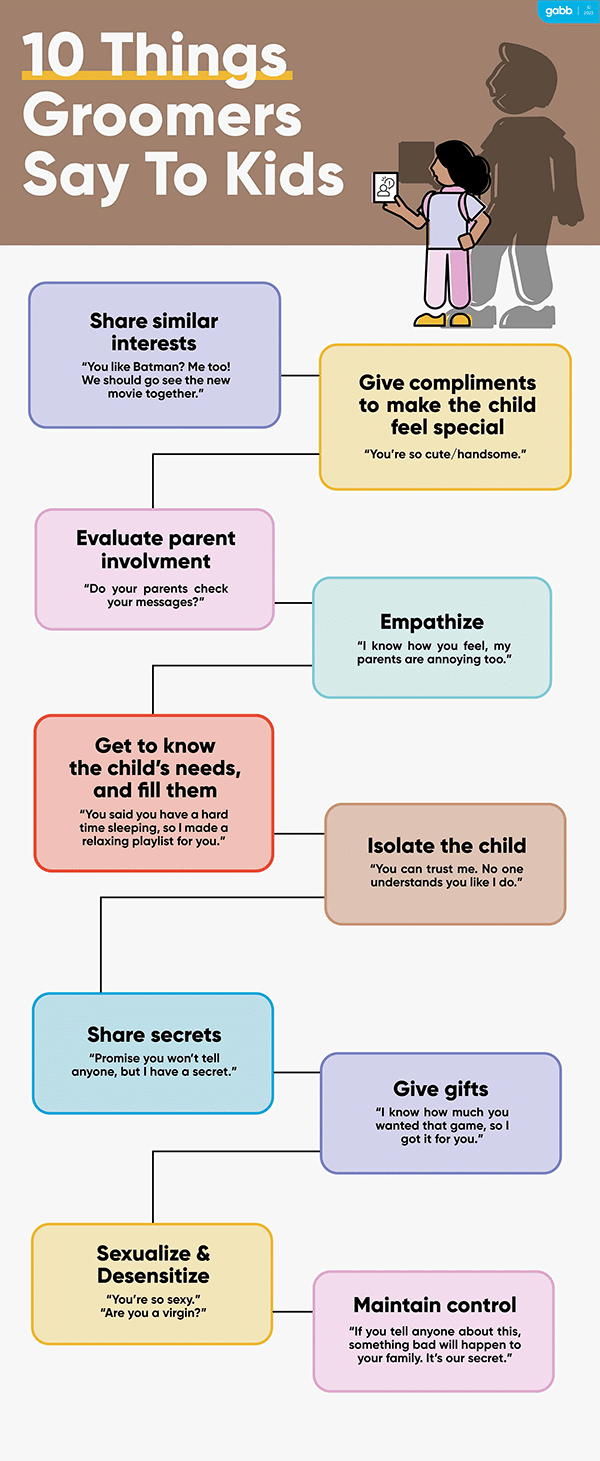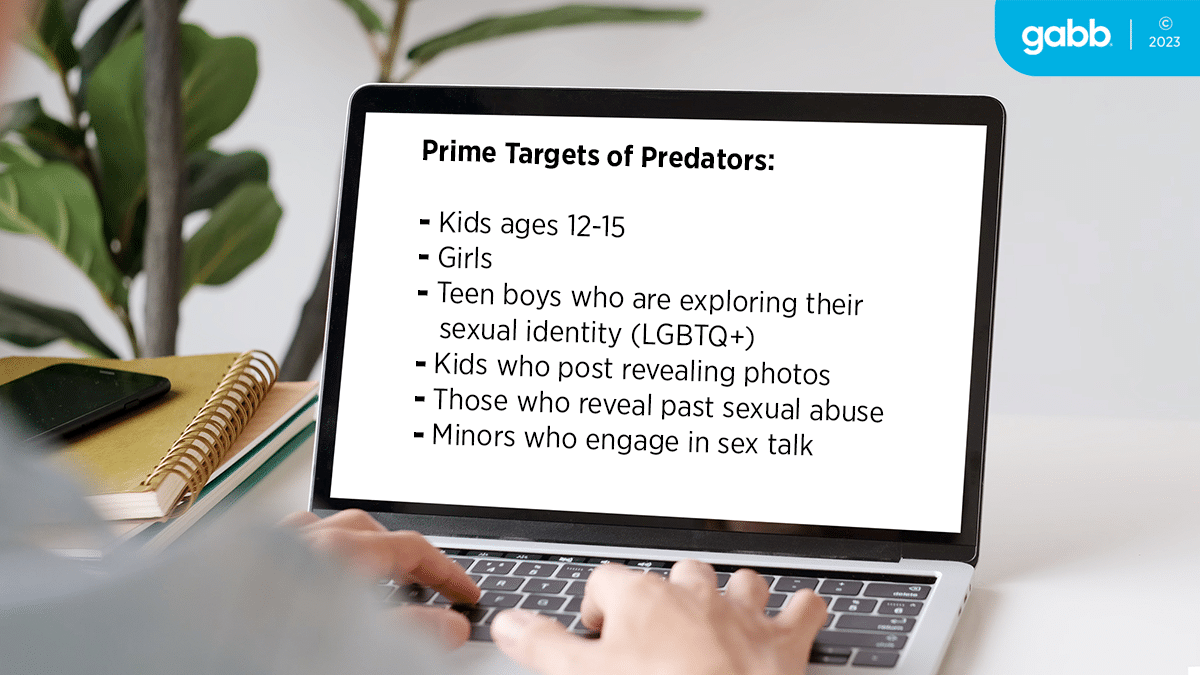Parents teach their children about stranger danger—the idea that any stranger could potentially be dangerous. Children are taught to be cautious of anyone trying to lure them into a car to see a puppy or offering candy. But predators are rarely that obvious. In-person and online, these criminals are diabolical in their methods.
The FBI estimates that over 500,000 predators are online each day. [1]
With our digital lives becoming so central to our daily interactions, parents can do their best to keep kids safe by educating themselves on the tactics and tricks predators use in online grooming. With that knowledge, we can empower our children to protect themselves by recognizing when they are being groomed.
How Predators Choose a Target
Any child can be a target, but young adolescents are especially vulnerable. It’s during this age when kids are becoming more independent and start to pull away from parents. Predators exploit this independence and vulnerability. Predators often go “bunny hunting,” [2] a term used by groomers to describe tracking down an unsuspecting and innocent child.
In the words of Donna Rice Hughes, CEO of Enough is Enough, “Where kids play, predators prey.” Predators lurk online wherever children are, such as on social media and online video games.
Victims are selected after being observed and deemed vulnerable. Kids with provocative profile pictures or sexual screen names are prime targets for predators. Those who are vocal about prior sexual abuse or who are exploring their sexual identity can also find themselves being comforted by predators posing as an understanding “friend” online.
The stages of grooming vary, but often once a child is chosen as the target, predators comb through the child’s profile to learn more about them. Groomers often befriend other friends of the child to create a façade of familiarity before contacting the victim.
It is not uncommon for the predator to look for other platforms where the child may have an account. By doing so, these criminals can further customize their attack.

10 Things Predators Say
Once contact begins, groomers are intentional with the things they say. Grooming behaviors differ for each individual, but all have the same end goal—to build trust. Some choose to give compliments, share a fake personal story, or tell a secret.
Once the friendly connection is cemented, dirty jokes, sharing of pornography, and sexual talks follow. This slowly desensitizes the child and can open the door to sexting, sextortion, and child sexual abuse.
These conversations can start on multiple online platforms, such as in a Roblox chat room, on an Oculus, or in a private message, called a DM (direct message) on TikTok. Predators can move the conversations to WhatsApp or directly to a child’s cell phone.

How Parents Can Help Prevent Predators from Grooming a Child
Having open and regular conversations about these hard topics will empower and strengthen our children. No matter how vigilant parents are, kids will likely encounter online dangers. It will be up to them to act wisely, but through education, they will have the knowledge to do so.
Sexual Education
Sexual education is also an important part of this discussion. Once parents feel their child is ready for these conversations, kids will benefit from knowing about sexual intimacy, their bodies, and being able to identify when they are being asked for self-generated child abuse material (SG-CSAM) (pornography). Kids can be taught that having these intimate conversations with any person online is a red flag, whether it’s an adult or a kid their age.
Stranger Danger
Stranger danger is real, especially online. Reminding our children often about this fact will help deter them from friending, talking, and sharing personal information online with strangers. Through frequent talks and reminders, kids can learn ways to identify online predators, and feel comfortable coming to us for help.
Parents can check their child’s online profiles to ensure no personal information is being shared. Look through their friends’ lists together and determine if there are any strangers. Encourage your child to always keep a private profile. Investigate if your child has any fake social media accounts you may not know about.
Real Friends
Discerning between a real online friend and a predator is difficult. Kids can benefit from knowing what a true friend looks like. Real friends never threaten, they don’t ask the child to lie, or make them uncomfortable. Young people should know it’s a red flag if a friend acts in these ways, and the child should tell us about it.

What parents can do if a child has been groomed
If your child has been groomed or you suspect they are talking to a predator online, let your child know this is not their fault. Contact local authorities. Seek professional support from your child’s pediatrician who can recommend mental health resources. The impact of sexual abuse is profound, even if the predator never physically made contact with your child.
RAINN, the Rape, Abuse and Incest National Network’s (RAINN) has several resources. You can call their National Sexual Assault Hotline at 800.656.HOPE (4673) or chat with a trained staff member 24/7.
The National Center for Missing & Exploited Children has a helpline to report crimes against children—including child pornography, online enticement, and obscene material sent to a child. You can also call 800.843.5678.
Gabb’s blog has additional articles to further help families. Parents can learn specific skills to protect their children from predators and how to look for signs a child is being groomed.











Success!
Your comment has been submitted for review! We will notify you when it has been approved and posted!
Thank you!